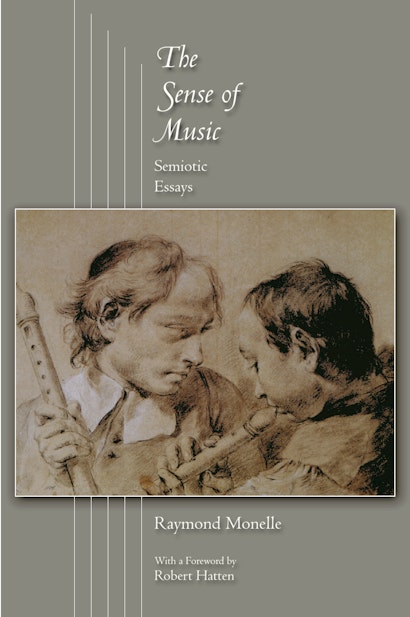The Sense of Music: Semiotic Essays


Paperback
- Price:
- $58.00/£48.00
- ISBN:
- Published:
- Nov 12, 2000
- Copyright:
- 2001
- Pages:
- 336
- Size:
- 6 x 9.25 in.
- 6 tables, 1 halftone
ebook
The fictional Dr. Strabismus sets out to write a new comprehensive theory of music. But music’s tendency to deconstruct itself combined with the complexities of postmodernism doom him to failure. This is the parable that frames The Sense of Music, a novel treatment of music theory that reinterprets the modern history of Western music in the terms of semiotics.
Based on the assumption that music cannot be described without reference to its meaning, Raymond Monelle proposes that works of the Western classical tradition be analyzed in terms of temporality, subjectivity, and topic theory. Critical of the abstract analysis of musical scores, Monelle argues that the score does not reveal music’s sense. That sense—what a piece of music says and signifies—can be understood only with reference to history, culture, and the other arts. Thus, music is meaningful in that it signifies cultural temporalities and themes, from the traditional manly heroism of the hunt to military power to postmodern “polyvocality.”
This theoretical innovation allows Monelle to describe how the Classical style of the eighteenth century—which he reads as a balance of lyric and progressive time—gave way to the Romantic need for emotional realism. He argues that irony and ambiguity subsequently eroded the domination of personal emotion in Western music as well as literature, killing the composer’s subjectivity with that of the author. This leaves Dr. Strabismus suffering from the postmodern condition, and Raymond Monelle with an exciting, controversial new approach to understanding music and its history.